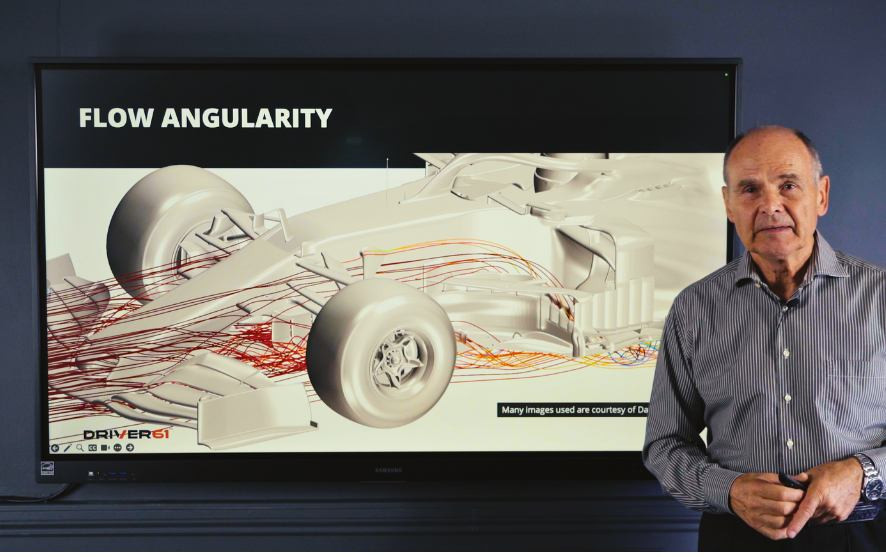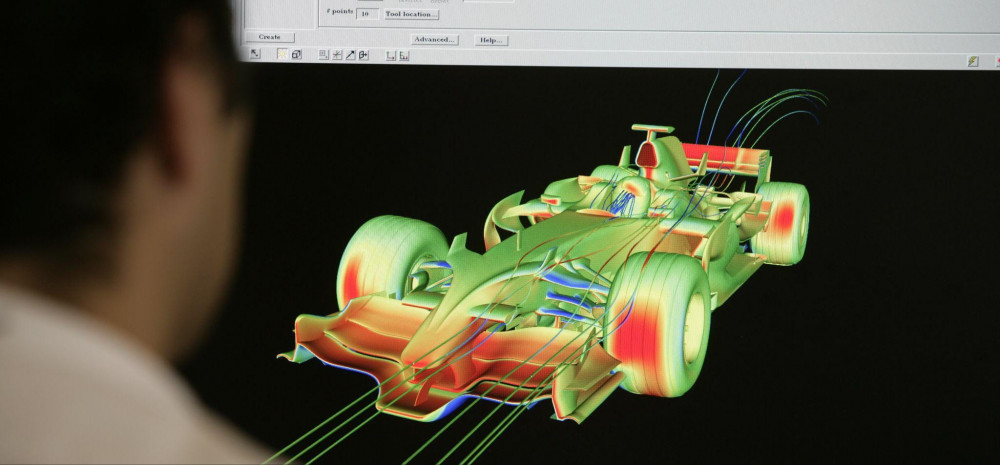Securing an interview for a motorsport role is a huge milestone achieved on its own. Now, it's time to prove you're the right person for the job.
This comprehensive guide will help you navigate the unique challenges of a motorsport interview, from technical questions to showcasing your passion for the sport.
1. Pre-Interview Preparation
Just as a race team meticulously prepares for each event, your interview preparation should be thorough and strategic.
Your interview prep should involve a deep dive into the company's recent performances, technical innovations, and industry challenges.
For instance, if you're interviewing with a Formula 1 team, understand their position in the Constructors' Championship, recent car upgrades, and how they've adapted to the latest regulations. This level of preparation not only demonstrates your genuine interest but also allows you to engage in meaningful discussions about the team's future direction and how you could contribute to their success.
- Research the team/company: Understand their recent performance, technical challenges, and ongoing projects. As Todd Jack Hooker, former head of talent at Williams F1, advises in a FluidJobs seminar: "Knowing your why is really important especially when you apply for roles and when you go for interviews."
- Understand the role: Analyse the job description and make sure you're demonstrating that your skills align with the requirements. Consider how your unique experiences could bring value to the specific challenges the team is facing.
- Review fundamental concepts: Brush up on relevant technical knowledge. For example, if you're interviewing for an aerodynamics role, review topics like 2D aerofoil theory or multi-element aerofoils. Be prepared to discuss these concepts in the context of current motorsport challenges.
- Prepare questions: Have thoughtful questions ready about the role and the team's future plans. These could include inquiries about their approach to upcoming regulation changes or their strategy for balancing short-term performance gains with long-term development.
2. First Impressions
Every aspect of your presentation in an interview can impact the outcome. Your demeanour, dress, and initial interactions all contribute to the interviewer's perception of you. Remember, in a high-performance environment like motorsport, attention to detail and professionalism are highly valued. Showcase these qualities from the moment you step into the building.
- Dress appropriately: Research the company culture and dress slightly more formally. In motorsport, this often means smart casual rather than a full suit. Consider wearing something that subtly nods to your passion for the sport, like a tasteful watch with motorsport heritage.
- Body language: Project confidence with a firm handshake, good eye contact, and an enthusiastic demeanour. In motorsport, where split-second decisions can make the difference, showing calm confidence is crucial.
- Arrive early: Aim to arrive 10-15 minutes before your scheduled time. Use this time to compose yourself and observe the work environment. Notice details about the workspace - you might spot something interesting to mention during small talk.
"I like to make a point of coming down to greet candidates in person. On one occasion, a candidate assumed I was an assistant, treated me in a very offhand way and rather rudely asked me to get them a drink. They got quite a shock when they saw I was heading up the interview panel!" - Anonymous F1 Team Manager
3. Demonstrating Technical Knowledge
Technical prowess is crucial in motorsport. Be prepared to dive deep into your area of expertise.
Just as a race engineer needs to understand every aspect of the car's performance, you need to demonstrate a comprehensive grasp of your field. Be prepared for questions that not only test your knowledge but also your ability to apply it in practical situations. Interviewers want to see how you think through problems and arrive at solutions, much like how a race strategist might adapt to changing track conditions.
- Handle technical questions: Expect detailed questions about your field. For aerodynamicists, this might include topics like "the influence of the gap (slot) on the flap or the separation of different elements in the rear wing on lift and drag,". Be ready to explain complex concepts clearly and concisely.
- Discuss recent developments: Show that you stay updated with the latest in motorsport technology. This could include recent innovations in your field, changes in regulations, or emerging trends in motorsport engineering.
- Problem-solving: Be ready to walk through your problem-solving process for real-world scenarios. You might be presented with a hypothetical situation and asked how you'd approach it. Show your analytical skills and ability to think on your feet.
4. Showcasing Practical Experience: Your Track Record
In motorsport, practical experience often trumps theoretical knowledge. Highlight your hands-on experience effectively.
In motorsport, teams value individuals who can translate theoretical knowledge into real-world results. When discussing your experiences, focus on the impact you made and the lessons you learned. Quantify your achievements where possible, just as a driver might reference lap times or championship points. Even if your experience isn't directly in motorsport, draw parallels between your past roles and the challenges faced in racing environments.
- Formula Student: If you've participated, discuss your role and key learnings in detail. Highlight any innovative solutions you developed or leadership roles you took on.
- Personal projects: Explain any motorsport-related projects you've undertaken, emphasizing the skills you've developed. This could include anything from building a racing simulator to analysing race data.
- Internships or work experience: Even if not directly in motorsport, explain how your experience is transferable. Focus on skills like problem-solving, teamwork, and working under pressure - all crucial in motorsport environments.
Nothing really stands out more than actually being able to go and say hey, look, I volunteer to go and either be on track or I volunteer to either go and do some work experience to really get a taste for this.
5. Addressing Motorsport-Specific Challenges
Motorsport careers come with unique challenges. Show that you're prepared for them.
When discussing the specific demands of motorsport careers, demonstrate that you've thought deeply about what the lifestyle entails. Show that you're not just attracted by the glamour, but that you understand and are prepared for the realities of the job. Your resilience and adaptability could be the qualities that set you apart from other candidates.
- Work-life balance: Demonstrate awareness of the long hours and travel often required in motorsport roles. Discuss strategies you've used in the past to maintain productivity and well-being in high-pressure environments.
- Continuous learning: Emphasize your commitment to staying updated in a rapidly evolving field. Share examples of how you've independently pursued learning opportunities in your area of expertise.
- High-pressure environments: Provide examples of how you've thrived under pressure in past experiences. Discuss your approach to managing stress and maintaining performance when stakes are high.
6. Effective Communication: Your Radio Clarity
Clear, concise communication is vital in motorsport, both on and off the track.
In motorsport, effective communication can be the difference between victory and defeat. Whether it's a race engineer relaying crucial information to a driver or a team manager coordinating a complex operation, the ability to communicate clearly and efficiently is paramount.
During your interview, demonstrate this skill by articulating your thoughts concisely and adapting your communication style to your audience. Show that you can break down complex technical concepts for non-technical team members, just as a race engineer might need to explain strategy to a marketing team.
- Articulate your passion: Express your enthusiasm for motorsport without resorting to clichés. Instead of just saying you love the sport, explain what specific aspects fascinate you and how they relate to your career goals.
- Use the STAR method: Structure your responses with Situation, Task, Action, and Result. This method helps you provide concrete examples of your skills and achievements in a clear, logical manner.
- Adapt your language: Be prepared to explain complex concepts both to technical and non-technical interviewers. Practice translating technical jargon into layman's terms without losing the essence of the information.
7. Asking Intelligent Questions: Your Feedback Loop
Asking thoughtful questions shows your genuine interest and engagement.
In motorsport, continuous feedback and analysis are crucial for improvement. Similarly, asking insightful questions during an interview demonstrates your analytical thinking and genuine interest in the role. Your questions should show that you've done your research and are already thinking about how you can contribute to the team's success. They also provide an opportunity for you to gauge whether the role and team culture align with your career goals and working style.
- "How does the team approach the balance between in-season development and long-term projects?"
- "What opportunities are there for cross-functional collaboration within the team?"
- "How does the team foster innovation while working within the constraints of regulations?"
- "Can you tell me about a recent challenge the team faced and how it was overcome?"
- "What do you see as the biggest opportunities and challenges for the team in the coming seasons?"
8. Handling Technical Assessments: Your Qualifying Lap
Some interviews may include technical assessments or presentations.
Technical assessments in a motorsport interview are like your qualifying session - they're your opportunity to showcase your skills under pressure.
These assessments are designed to evaluate not just your technical knowledge, but also your problem-solving approach, creativity, and ability to work within constraints - all crucial skills in motorsport.
Approach these tasks with the same methodical, focused mindset that a race engineer would apply when optimizing a car's setup. Even if you're not sure of the perfect solution, showing your logical approach and creative thinking can impress interviewers.
- Prepare a presentation: If asked in advance, create a clear, concise presentation that showcases your technical skills and innovative thinking. Structure it like a race strategy - with a clear objective, key points (like pit stops), and a strong conclusion.
- On-the-spot tasks: Stay calm and talk through your thought process, even if you're unsure of the final answer. Show how you break down complex problems and consider multiple factors, just as a race strategist would.
- Technical discussions: Be prepared to engage in detailed technical discussions about your field. This might involve analyzing data, interpreting graphs, or proposing solutions to specific engineering challenges.
9. Post-Interview Follow-Up: Your Cool-Down Lap
The interview doesn't end when you leave the room.
In motorsport, the cool-down lap is a crucial time for reflection and initial feedback. Similarly, your actions after the interview can have a significant impact on your chances of success. This is your opportunity to reinforce your interest in the role, address any points you feel you could have explained better, and leave a lasting positive impression. Just as a driver might review race data with their engineer, use this time to reflect on the interview and consider how you can improve for future opportunities.
- Send a thank-you email within 24 hours, reiterating your interest in the role. Personalize it by referencing specific points from your conversation.
- If you think of additional relevant information or ideas, include them concisely in your follow-up. This shows continued engagement and enthusiasm.
- Be patient but proactive. If you haven't heard back within the timeframe discussed, a polite follow-up inquiry is appropriate.
- Regardless of the outcome, maintain a professional and courteous demeanour. The motorsport industry is small, and maintaining good relationships is crucial.
10. Learning from Unsuccessful Interviews: Your Data Analysis
Not every interview will lead to a job offer, but each is a learning opportunity.
In motorsport, data analysis after each race is crucial for continuous improvement. Similarly, every interview, successful or not, provides valuable data for your career development. Approach post-interview analysis with the same rigour a race team would apply to post-race debriefs. Identify areas where you performed well and areas for improvement. Consider how you can refine your "setup" for future interviews, just as a team might fine-tune their car based on race performance.
- Request feedback from the interviewer or HR department. Be specific in your request, asking about particular areas where you could improve.
- Reflect on what you could improve for future interviews. Were there questions you struggled with? Areas where you could have showcased your skills better?
- Stay positive – many motorsport professionals faced multiple rejections before landing their dream role. Use each experience as a stepping stone towards your goal.
- Consider each interview as practice for the next one. The more you interview, the more comfortable and proficient you'll become.
Mastering the motorsport job interview is a skill that comes with preparation and practice. By thoroughly researching the company, showcasing your technical knowledge and practical experience, and demonstrating your passion for the sport, you'll be well-positioned to impress your interviewers.
Remember, If you have some skills, if you're a helpful person, and if you're willing to get involved, I promise some of these teams would love to have you there.
Approach each interview as an opportunity to learn and grow, regardless of the outcome. With persistence and continuous improvement, you'll be well on your way to securing your dream role in the exciting world of motorsport. Good luck, and may your career in motorsport be as thrilling as the sport itself!




